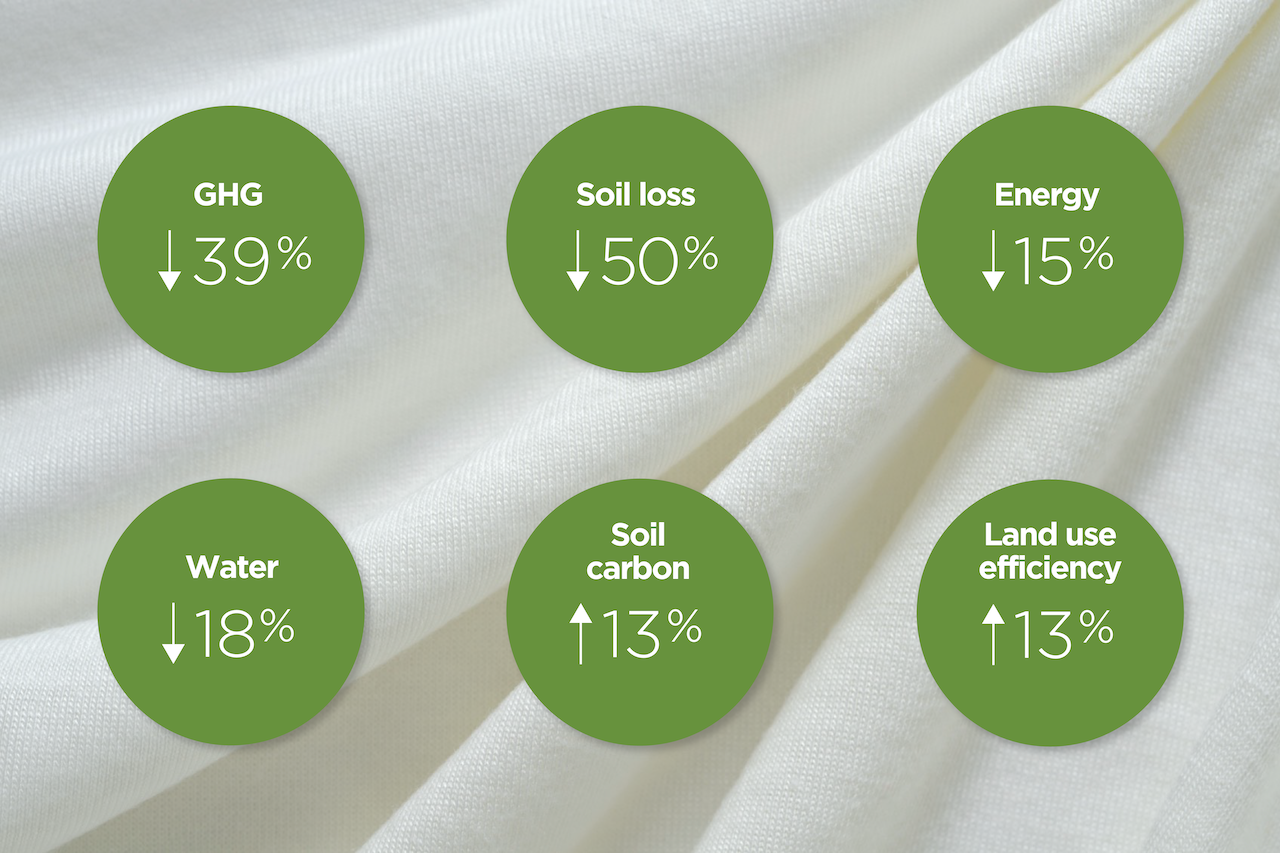By: Dr. Deepika Mishra, Global Sustainability Manager for Cotton Council International and Special Advisor to the U.S. Cotton Trust Protocol
From LinkedIn: https://www.linkedin.com/pulse/investing-our-planet-through-continuous-improvement-trustuscotton/
April 22nd, 2022, marks the 52nd anniversary of the very first Earth Day. What began in the United States as a day of education and demonstration about environmental issues has now grown into a global phenomenon that 1 billion people celebrate. The theme for Earth Day 2022 is "Invest in our Planet," which focuses on the effects of climate change and what efforts are being made to mitigate.
The U.S. cotton industry knows about this firsthand; From grower to ginner to merchant, there has been an unwavering determination towards driving continuous improvement over the last four decades. Since 1985, U.S. cotton growers have used 79% less water and 54% less energy and reduced greenhouse gas emissions by 40% while reducing land use by 49%. Adopting practices such as minimal tillage, GPS, and sensor-driven precision agriculture and the growing of winter cover crops have further improved soil health, reducing loss and erosion by 37% per acre and increasing soil carbon levels.
Since 1985, U.S. cotton growers have used 79% less water and 54% less energy and reduced greenhouse gas emissions by 40% while reducing land use by 49%.
In recent years, scrutiny of the sustainability performance of all sectors of the global economy has intensified, as the impact of human activity on the planet and its climate has become increasingly understood, visible, and concerning. The U.S. Cotton Trust Protocol recognizes this need, which is why the initiative was conceived in the belief that the U.S. cotton industry must play its part to "invest in the planet" and in a measurable and quantifiable way.
In November 2021, the Trust Protocol published its inaugural Annual Report that highlighted aggregate farm-level data, received from 300 grower members in 16 states and 147 counties. This involved the weighted average from harvested acres for the six individual environmental metrics outlined in the 2025 National Goals for Continuous Improvement. The report also benchmarked against the 2015 Ag districts across the cotton-growing states, which were chosen as they represent actual crop management practices.
According to findings, in 2020/21 Trust Protocol grower members' aggregate yield was 1,162 lbs/acre, above the 2015 representative group of 867 lbs/acre, and the U.S. average yield of 825 lbs/acre. For land use, Trust Protocol grower members used 38 square feet to produce a pound of cotton, compared to the 2015 U.S. representative group average of 48 square feet. In irrigation water use efficiency, Trust Protocol grower member aggregate was , 0.018 lb/ft3, meaning for each one cubic foot of water, 0.018 additional pounds of fiber was produced, increasing the efficiency by 14% over the 2015 U.S. representative group of 0.016 lb/ft3. The 2025 goal is to increase water use efficiency by 18%.
In 2020/21 Trust Protocol grower member energy use aggregate was 5,857 btu/lb, over the 2015 U.S. representative group average of 8,049 btu/lb. This showed improvement against the 2025 sustainability goal of a 15% reduction. Relative to the 2015 representative group, Trust Protocol grower members showed improvement by reducing GHG emissions by 25% towards the path to reach the 2025 sustainability goal of 39%.
Implementing regenerative practices also positively influences the entire bio sequestration and the storing of carbon, which is directly helping to reduce greenhouse gas emissions. In addition, it influences soil nutrient availability, water holding capacity, biodiversity, ecotoxicity, and the overall ecosystem. Soil health and soil carbon are high priorities for Trust Protocol grower members as healthy soils aid in retaining more water, carbon storage, and crop productivity. The 2020/21 Trust Protocol grower members reduced soil loss by 78% compared to the 2015 U.S. representative group of 12.6 tons/ac/year. In addition, 66% of Trust Protocol Grower members had a positive Soil Conditioning Index value, meaning the soil health is well maintained and the soil organic matter levels are predicted to increase.
Over time as the Trust Protocol program is in place and the data is published and recorded, it gives us all a chance—from growers to supply chain stakeholders—to systematically track continuous improvement with the collection of robust data. Accurate data collection sets the stage for appropriate decisions. Having this transparency will help growers and the entire cotton supply chain.
Measurable and verifiable data is a crucial factor when it comes to continuous improvement. With this information, we can make data-driven decisions that improve production efficiency and help preserve and restore critical habitats, protect watersheds, and protect soil health by preventing degradation. This data is an investment in the planet and ourselves, as we all do our part to mitigate the threat of climate change. Together we can make a difference, but we will need measurable and verifiable data to get us there.
For more information visit: https://trustuscotton.org.



